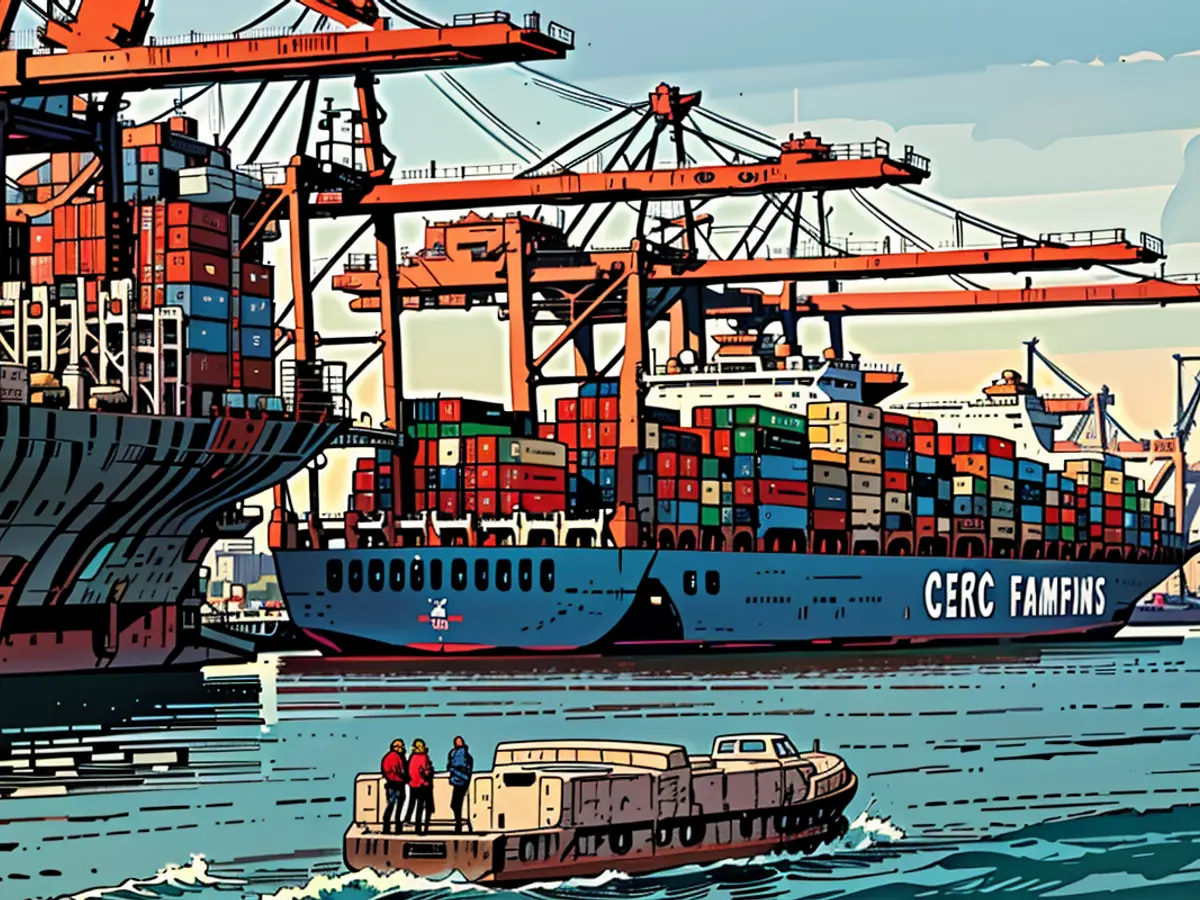German foreign trade weakens in May: exports and imports down
According to the Statistical Office in Wiesbaden, goods worth 131.6 billion Euro were exported in May, which is 3.6% less than in April and 1.6% less than the same month the previous year. Exports had increased in April.
The decline in imports was even more pronounced: Compared to the previous year, May imports fell by 8.7%, and compared to the previous month, April, by 6.6%. Goods worth 106.7 billion Euro were imported into Germany in May.
The setback for foreign trade was more pronounced than expected by analysts. According to Factset's aggregated evaluations, exports were expected to decline by only 2.5% compared to the previous month.
Imports from other EU countries fell by 2.5% in May, while exports to countries outside the European Union decreased by 4.9%. Exports to China, Germany's most important trading partner in 2023, shrank by 10.2%.
DIHK Foreign Trade Chief Volker Treier commented on the Federal Office's figures, stating that "there is no summer fairy tale to report in exports." Not only geopolitical uncertainties and trade barriers were hindering exports. "The high bureaucracy and cost burden are also eroding the competitiveness of companies," he explained.
BGA President Dirk Jandura criticized that "much of the weakness in foreign trade is self-inflicted." He referred to "regulations and reporting requirements" that the government considered more important than export promotion. In addition, he criticized that "it is still not possible for the EU, after twenty years of intensive negotiations," to conclude major agreements such as with Mercosur countries in South America. "The new EU Commission must make the expansion of free trade agreements a priority," he demanded.
Furthermore, Jandura warned that "there is a risk of escalating sanctions against China." This is "neither in Germany's nor in Europe's interest," he added. Other ways should be found "to encourage China to comply with competition rules."
- The EU, being a significant trading partner, saw a decrease of 2.5% in its exports to Germany in May, following the trend of overall exports.
- The German IHK (Chamber of Industry and Commerce) acknowledged the challenges in foreign trade, as they also witnessed a decline in their member companies' exports.
- According to Destatis, the Statistical Office in Wiesbaden, Germany's imports from China, a crucial BGA (Federation of German Wholesale, Foreign Trade and Services) trading partner, decreased by 10.2% in May.
- The decline in imports and exports might impact Germany's overall foreign trade, which is under close observation by both the EU and German institutions like the DIHK (German Industry and Trade Association).
- The BGA President, Dirk Jandura, emphasized that some of the difficulties in foreign trade are self-inflicted, citing excessive regulations and reporting requirements as major hindrances.
- As EU and Germany continue to negotiate major agreements, like with Mercosur countries, Jandura urged the new EU Commission to prioritize and expedite the expansion of free trade agreements to boost exports.







